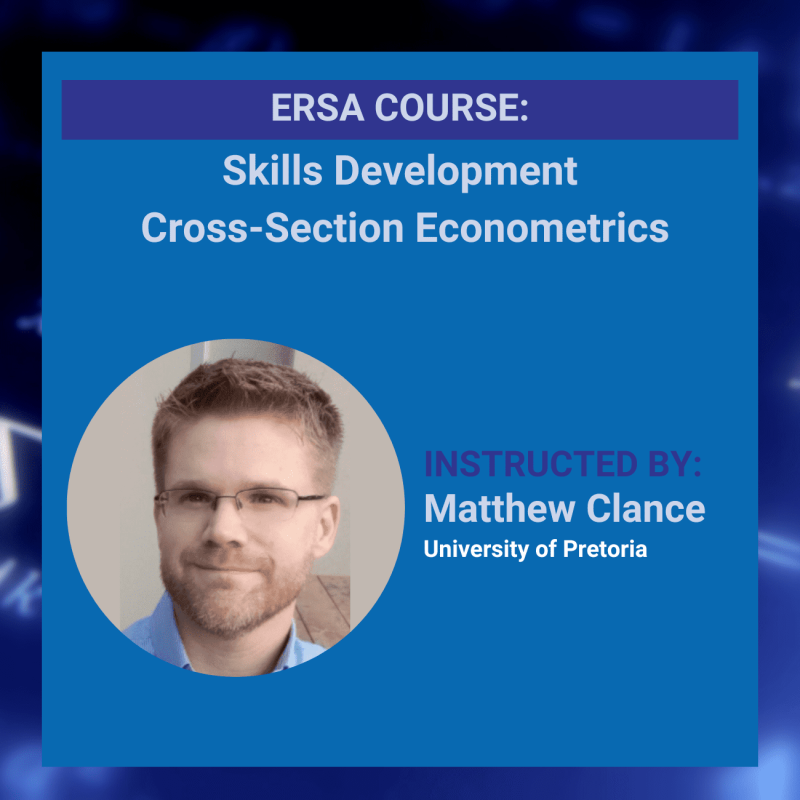The field of econometrics has developed rapidly over the past three decades, and the use of up-to-date econometric techniques has become more and more standard practice in empirical work in many fields of economics. ERSA’s econometrics courses lay the foundation to understanding the more advanced material and techniques.
The purpose of this module is to develop a core modelling understanding that is applied in cross-section econometrics. It is assumed that all participants are familiar with OLS and likely to have seen some categorical models. In addition to these, we also include quantiles, and basic ideas related to endogeneity. The focus is on presenting and interpreting the sorts of results that would be included in a research paper. This course covers the foundation of an extremely large number of modelling approaches, which can be applied in microeconomics and will use the R software, as it is most accessible (being entirely free) and highly flexible.
Format and Schedule
The course took place over five days and consisted of lectures, discussions and practical sessions that facilitate model development. Major topics covered in the course include:
- Data and R
- Ordinary Least Squares
- Quantiles
- Categorical Models
- Standard Big N Panels
- Endogeneity
Target participants
This course is recommended for Masters and PhD students in Economics or related fields and practitioners and government officials with at least a Masters Degree.
Instructors
Matthew Clance is an Associate Professor at the University of Pretoria and a Fellow at Pan-African Scientific Council. His background includes applied econometrics and geospatial analysis of micro Big Data and he has worked on various projects related to the Lancet Commission and African Climate Policy Center projects.
Steven Koch is currently a fellow of the Econometrics Society and serves on the Africa Region Standing Committee of the Econometrics Society. He is also the Managing Editor of South African Journal of Economics. His research interest areas are Health and Labour Economics, Household Finances and Welfare, Environmental Economics and Energy Economics.
To view the playlist, please click on the button with the three bars on the top right of the thumbnail below. The related course content can be found at the bottom of the page.


